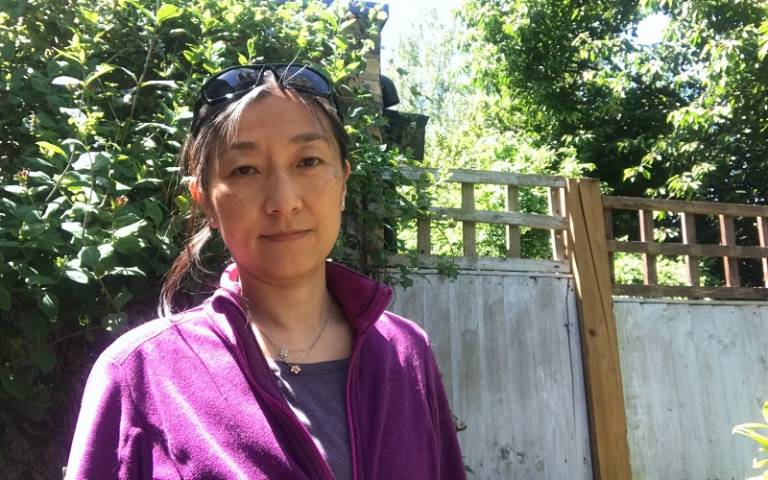Spotlight on... Dr Maki Kimura
10 June 2021
This week we meet Dr Maki Kimura, Lecturer (Teaching) in Gender and Politics in the Department of Political Science. Here, Maki chats to us about her work in various EDI roles and her current research looking into how war memorials construct memories of war.

What is your role and what does it involve?
My time is split between two departments, Political Science and Arts and Sciences. In the Department of Political Science, I teach modules on gender and politics, and have recently been appointed as a staff lead for the BAME staff-student network. This involves collaborating with the student lead and other Equality, Diversity and Inclusion (EDI) network leads to promote equality, diversity and inclusion in the department. As for Arts and Sciences, together with my colleague, I put on student engagement events and also assist the director in developing the EDI strategies of the department (on top of seminar teaching and dissertation supervision!).
How long have you been at UCL and what was your previous role?
Before joining UCL – over ten years ago now – I was a research fellow at the Open University and took on various higher education research projects in the field of discrimination and inequality, in particular the kind of challenges experienced by BAME students and staff in the university setting.
What working achievement or initiative are you most proud of?
I have always set out to teach students that gender inequality intersects with inequalities based on other social categories such as race and ethnicity. At the same time, we need to use our knowledge critically to understand the experiences of discrimination and inequality which are often made invisible. Not sure how far I have achieved this goal, but at least some students have responded really well to this strategy!
Tell us about a project you are working on now which is top of your to-do list?
One of the projects that I am currently working on – which is funded by the British Academy/Leverhulme Small Research Grants – looks into how war memorials affectively construct memories of war. For this project I am focusing on memorials dedicated to the ‘comfort women’ who were sexually enslaved by the Japanese military during the Second World War. However, it’s not just the design and material of the memorials themselves that interests me but also their immediate surroundings. Another aspect is how people engage with them, which is key to how particular historical memories are constructed. So, on my to-do list is a visit to Bristol to see Colston's statue – now on display in a museum – as well as the vacant plinth left behind, and also to take a photo of the Mary Wollstonecraft statue: 'Mother of feminism' in Newington Green, which was put up last autumn and attracted a huge amount of controversy.
What is your favourite album, film and novel?
Album – Girl On Fire, Alicia Keys;
Film – The Gleaners and I, Agnès Varda;
Novel – The Garnethill trilogy by Denise Mina.
What is your favourite joke (pre-watershed)?
I’m known as someone who totally lacks a sense of humour, so I’m not really qualified to answer this question…
Who would be your dream dinner guests?
My first choice would be my dear late friend Dr Roona Simson so we could talk about which feminist figures we would like to invite for our own dinner party…
What advice would you give your younger self?
Do what you really love to do, rather than what you have to do.
What would it surprise people to know about you?
I’m a big fan of trail and cross country running, which involves being soaked in a mud bath when the weather is filthy.
What is your favourite place?
Glasgow Botanic Gardens.
 Close
Close

